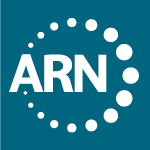What Does A Rehabilitation Admissions Liaison Nurse Do?
The Association of Rehabilitation Nurses (ARN) believes the role of the rehabilitation nurse is essential in the continuum of care for individuals with disabilities or chronic illness. ARN aims to promote a high degree of professionalism, in keeping with the established scope and standards of rehabilitation nursing practice ARN has published.
The rehabilitation admissions liaison nurse performs activities and duties related to preadmission assessment screening and admission of clients to services along the rehabilitation continuum of care.
Scope of Practice and Responsibilities of the Rehabilitation Admissions Liaison Nurse
The goals of the rehabilitation admission liaison nurse are to identify clients who meet program criteria and will benefit from program services and to facilitate effective care transitions to the rehabilitation setting for these clients. The process typically involves the following steps:
- Early identification of candidates/potential clients.
- Education of clients, family members, referral sources, and external payers regarding the effective and efficient utilization of program services and available resources.
- Screening of clients through on site and/or telephonic assessment and record review in collaboration with physicians, nurses, therapists, social workers, case managers and other interdisciplinary team members involved in the client's care. If the client is unable to participate in an interview, family members or significant others may also be interviewed to obtain accurate information as to pre-morbid functional status, personal interests, cultural considerations, and discharge plans affecting the rehabilitation admission.
- Determination of medical stability, readiness for program participation, and that services recommended are appropriate, reasonable and necessary. This is done in collaboration with the physical medicine and rehabilitation physician or other licensed treating physician with specialized training and experience in rehabilitation.
- Facilitation of benefit eligibility and precertification by payers prior to the rehabilitation admission.
- Coordination of a smooth transition from the referring facility or site to the rehabilitation setting.
- Recommending appropriate level of care and services for clients who are denied admission and providing guidance for clients who may benefit from rehabilitation admission in the future.
Roles and Duties of the Rehabilitation Admissions Liaison Nurse
The roles of the rehab admissions liaison nurse include, but are not limited to:
Practitioner
- Performs on-site and/or record review, including telephone preadmission screening and clinical assessment
- Completes all required preadmission screening documentation to determine that services are appropriate, reasonable and necessary
- Provides recommendations for appropriate level of care
Educator
- Educates clients, family members or significant others, referral sources, interdisciplinary team members, external payers, and external case managers about rehabilitation program benefits and services and post-acute care services
Advocate
- Serves as the liaison case manager with the internal and external case managers to provide an appropriate and cost-effective plan for each client
- Demonstrates effective communication between internal and external customers at all times
- Maintains high ethical standards
Consultant
- Serves as a rehabilitation nurse consultant, with attention to the client’s rehabilitation potential, therapy and functional progress, discharge plan and feasibility, special equipment needs, rehabilitation services across the continuum of care, and care transitions
- Demonstrates a high level of knowledge of regulations and external payer requirements
- Assists in facilitation benefit eligibility and precertification, including providing a plan of care and participating in external payer negotiations
Outreach Coordinator
- Maintains a thorough knowledge of rehabilitation settings, post-acute care services, acuity trends and outcomes
- Develops relationships with referral sources
- Assumes accountability for outreach activities, including data management and outcomes analysis
- Develops rapport with clients and their family members or significant others
- Conducts other outreach activities including exhibiting and providing tours
Facilitator
- Provides information necessary to facilitate referrals and subsequent admissions
Negotiator
- Provides referral sources with cost-effective plans for rehabilitation
- Provides outcome data
- Negotiates approval for a client’s stay
- If necessary, negotiates rates with payers
Collaborator
- Serves as a contact person for the rehabilitation team, internal admissions team, clients, and external sources to enhance outcomes
Promoter
- Promotes effective public relations with clients and families, healthcare providers, and the community
- Exhibits professional behavior as a facility representative
Quality Control
- May provide regulatory oversight to maintain compliance with regulatory agencies governing the post-acute program.
Settings
The rehabilitation admissions liaison nurse provides services in inpatient, outpatient, community and residential settings. These settings include, but are not limited to, acute care facilities, long term acute care facilities, rehabilitation facilities, skilled nursing, nursing homes, residential or day care facilities, outpatient clinics and private residences.
Preferred Qualifications to Become a Rehab Admissions Liaison Nurse
- Licensure as a registered nurse, preferably with a bachelor’s degree in nursing from an accredited school
- A minimum of 2 years of clinical experience; experience in the rehabilitation of chronically or catastrophically ill or injured individuals
- Certification in rehabilitation nursing
- Demonstrated expertise in analysis, decision making, time management, oral and written communication, and computer use
- Knowledge of regulations of agencies involved in program operation and resources available for use in assessing regulations and parameters of third-party reimbursement
- Excellent assessment skills and knowledge of insurance and managed care principles and practices
- Ability to function independently
Reference
Association of Rehabilitation Nurses (2014). ARN Competency Model for Professional Rehabilitation Nursing. Chicago, IL.
Association of Rehabilitation Nurses (2014). Standards & Scope of Rehabilitation Nursing Practice, (6th ed.). Chicago, IL.
Association of Rehabilitation Nurses (2014). ARN Position Statement - The Essential Role of the Rehabilitation Nurse in Facilitating Care Transitions. Chicago, IL: Author.
Association of Rehabilitation Nurses (2014). ARN Position Statement – Ethical Issues. Chicago, IL: Author.
This role description was originally developed by the Admissions Liaisons Special Interest Group of the Association of Rehabilitation Nurses in 2002. Subsequent revisions were made in 2010, 2015, 2018.

